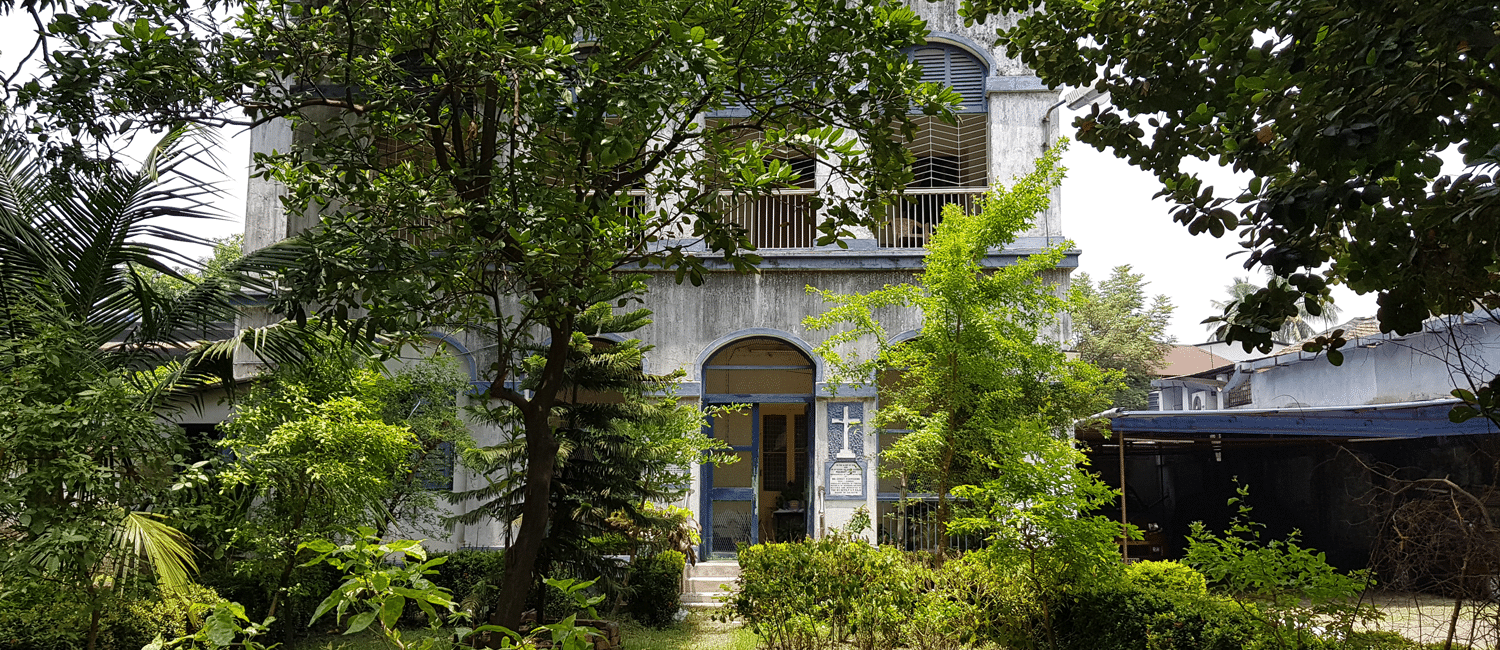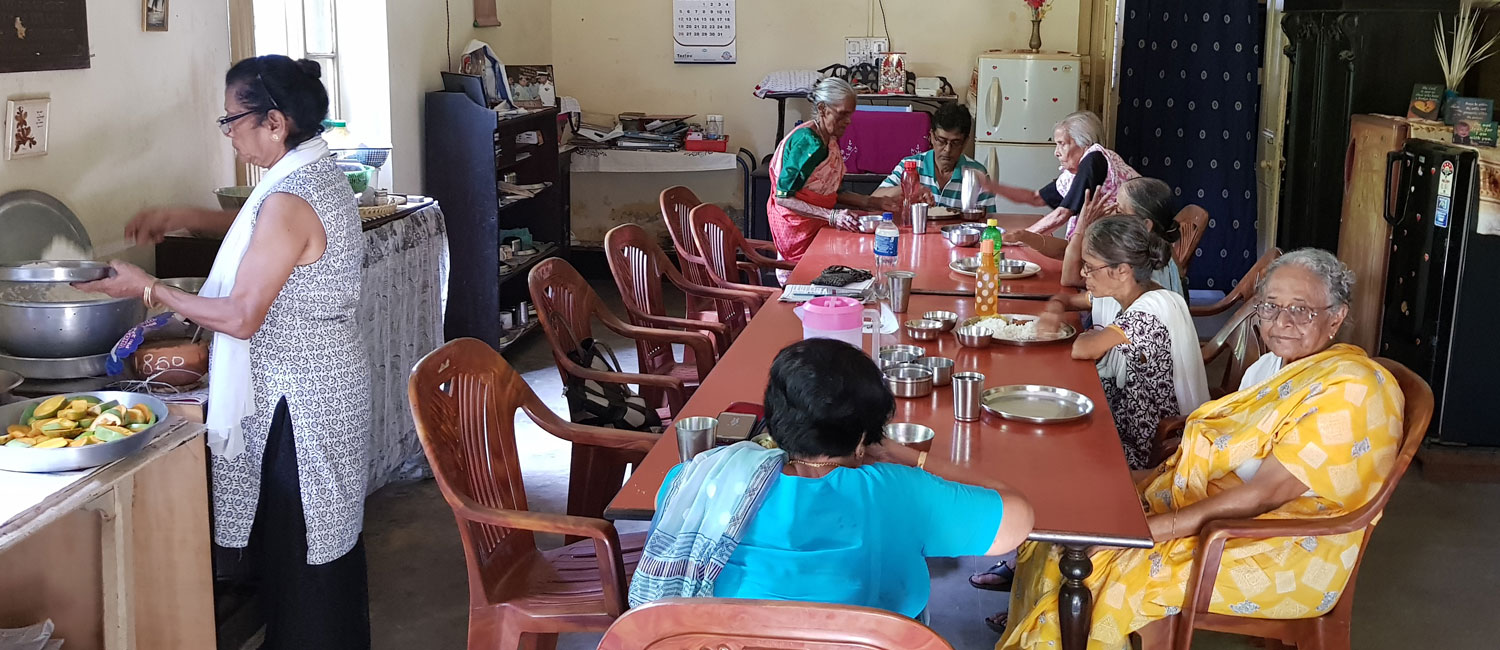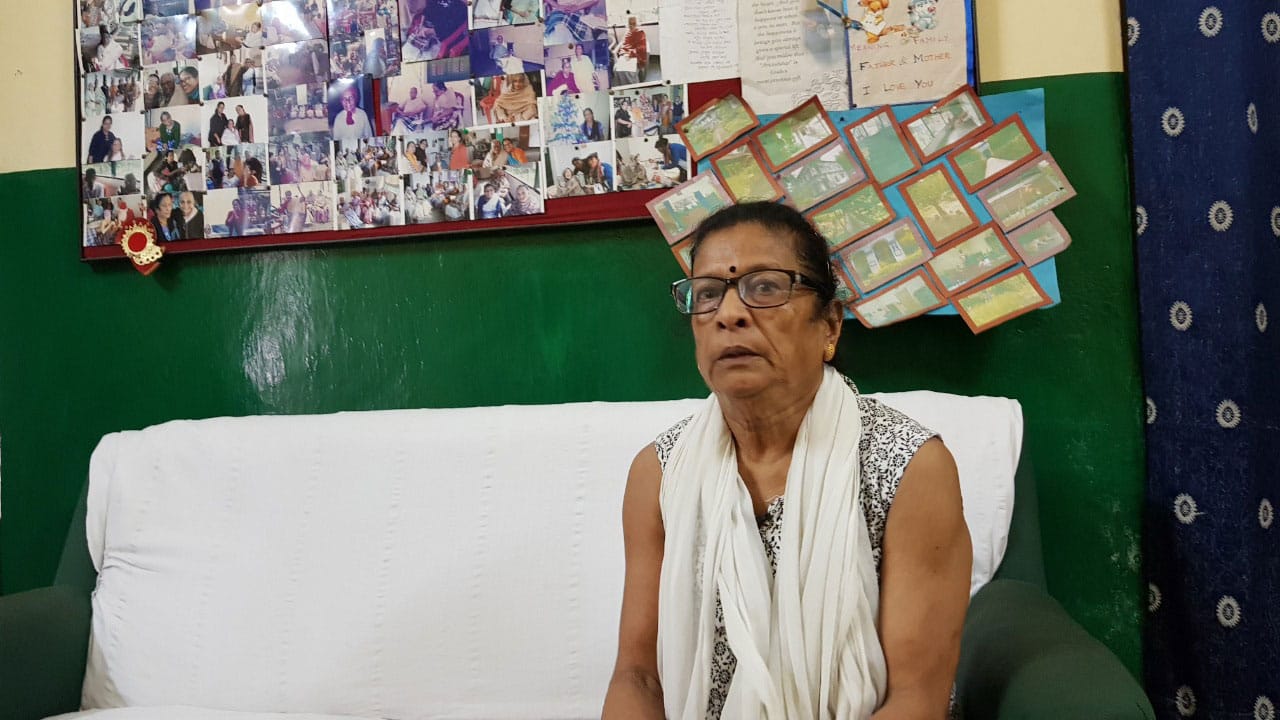If you walk down the alleys and bylanes of North Kolkata, particularly in Dr. Kartick Bose Lane, near Amherst street, you may come across a royal blue-hued rusty gate, which is quite easy to miss. A rusty font on the broken gate tells a complete story of the abandoned elderly people staying there.
Once you step in it is a whole new world. A building that seems to stand on thin ice and so are its residents. An unruly garden that has not been cared for years. Big trees and hedges hide the gloomy old house, which lost its bright white hue over a period of time and has now developed black patches all over its body and yet it stands strong as a witness to all seasons since 1876.
Life Beyond Numbers spent a day at the city’s first old age home, Mulvany House, which is a safe haven for abandoned parents, ailing parents, spinsters, destitute, people who don’t have a care in the world, the list is long and endless.
Are we living in a time where lifestyles might have changed for better, but it also scarred a huge section of society that comprises elderly people with negative consequences? But, ask these mothers what made them come here, and none, none of them judged their family.

Kolkata’s First Old Age Home
Taking history into account, it was a Protestant Missionary from England, Edith Mulvany who built the house for destitute Christian women, who had nowhere else to go and their families were not capable of looking after them. But, over time, it became a shelter for abandoned or orphaned children and well as hapless women and men of all faiths.
The old age home started when people were almost alien to this concept. Today, there are 14 elderly people and 5 staff who look after them.
Last year on Easter, the Kolkata Diocese of the Church of North India (CNI) that runs the home pledged to restore the old building and equip it with modern facilities. It will also have the capacity to accommodate 200 members.
“There will be commercial establishments such as a hospital, library, and a swimming pool so that we can take care of the elderly people in an efficient manner. Also, guests and family members will be able to stay here, if they plan to visit the old age home or family members. The project is huge, so it will take another two years,” says Gilby.
Story Of Abandoned Mothers
70-year-old Tarulata Das says, “Ami bhalo achi (I am good here)” in almost inaudible, trembling voice, but with a smiling face. Das, who suffered cardiac arrest and almost cannot speak has 3 sons and a daughter who stays in the city itself. The only mother and child bonding they have now is paying her bills and visiting her occasionally.
We are able to pay for our parents, but not look after them?
Das now shares her room with Pranati Das (87), who has also suffered cardiac arrest and is almost immobile. When LBN approached her and asked about how she is here, it was just a blank, helpless look. It was the maid appointed by her family members informed that she used to work at a post office and that it is difficult to take care of her at home, so his son, a physiotherapist by profession, has left her here and pays her bills.

Last year in a span of a few months, 7 residents of this old age home passed away and the empty beds reminded Pranati and Tarulata of that every single day. This has also left these abandoned mothers sad and silent, fearing that they will also meet the same fate- will die lonely and unloved.
“If you want to be in your children’s memories tomorrow, you have to be in their lives today,” someone once said.
These mothers did stay in their children’s lives, loved them with all their heart, attended to all their needs, but are their children willing to do the same for them?
Sapna Gilby, the superintendent of the Mulvany House narrates to LBN, “The saddest part of this residence is that they are not only old people, but they are also someone’s mother and father. Most of them are in their 80s and the children feel that their parents are a burden for them. They don’t want to take care of them and give the excuse that they are busy. So, it has come down to paying their bills only, which they think is equivalent to taking care of their parents. This is where we have to intervene and cater to the needs of these elderly people.”

Sapna, who was an ex-Navy officer came to Kolkata to visit her sister in 2011 and since then she has been staying here. “Even though I am a Bengali, I feel I have always belonged to Vishakhapatnam. My husband expired in 1987 and a year later, I got a job in the Indian army.” Adding to this, she says, “Today I feel extremely happy to be able to work with these people, and this is what I dreamt of, to be able to help people in need. I feel that I am one of them and that it is my responsibility to share their problem.”
Leaving your own behind
Ruth Biswas, who came at the old age home in 1975 shares few glimpses of her life with LBN and says, “Back then there were small children and I came here to take care of them and I never left.”
On asking if she feels lonely, the almost flabbergasted grandma says, “I have been staying here for 44 years. Of course, it means I like it here. Why will I feel lonely? So many people are there around me. My home was in Chhapra (Bihar) where I had to stay with my step-mother. We had constant issues and so I came here. I also have a daughter, but she stays in Basdroni and is taken care of by the members of Bishop’s House.”
Similarly, another resident, 84-year-old Ela Mondal says that she came here because everyone is working in her family and so they were left with very little time to take care of her. Her son is a teacher at Hazaribagh. “I was staying at my son’s place, but I used to feel lonely when everyone went to work, here we stay together as a family and they take care of our health and bear the medical expenses,” says Mondal.
Talking about the male residents of the old age home, Shekhar Bose (69) and Niloy Sarkar (60), both bachelors, now have each other when they go through an emotional crisis.
While talking to us, Bose says, “This December I will complete 7 years in this home. When I feel lonely I sit in the balcony and then I go back to my room.” When we asked what he does when he doesn’t feel well emotionally, with a gloomy smile, Bose says, “Nothing can comfort you when you don’t feel good.”
Sarkar, who used to work for an NGO before falling ill and ending up here, says, “My brother and his family live in a small flat and therefore, there was accommodation problem, so they shifted me here.”
Since, when have we stopped taking care of our own?
Sharing her journey, Anjali Adhikary (79) tells LBN, “I came here at my own will because at this age staying alone is risky. I am staying here for the past one year and the main reason is my son is staying with his family in foreign. He works for the United Nations (UN) and my daughter-in-law is in the Peacekeeping force in Morocco. They did ask me to stay with them, but after staying in Rwanda for 12 years, I wanted to come back to my own country.”
She continues, “I was a teacher for 18 years in St John High School and apart from talking to friends here, I spend my time by browsing YouTube videos, listening to music and texting on Whatsapp.”
Just before, the clock struck 12 and the lunch preparations were complete, we came across another humble soul in this home.
92-year-old Anima Mitra, who is a retired health department employee in Neel Ratan Sarkar (NRS) hospital and is staying here for the past 1 and half years, says, “Even though I have a home, but people who can care for me are less. My sons are working and one of my daughters is the principal of Assembly of God Church and another at La Martiniere. I like it here because everyone stays here as a family and didi (Sapna) look after us well.”
This grandma pens down her thoughts which takes the shape of beautiful poems. “To date, I have written 24 poems and after coming to Mulvany house itself, I have written three.”
On asking here to recite few lines from one of her poems, she asks, “Ami porley tumi shunbe? (If I read, will you listen?)”
“Tomar Aaloy Eshechi Mora, tumi je moder Mulvany home
Kato na Jatoney Rekhecho Modey, priyo ei Bridhhashram”
Sweeping their emotions under the rug, none of the mothers spoke ill about their children or blamed them, whenever asked why they were not living with their families, after a pause, all of them replied that it was their choice to come here.
We don’t know whether they willingly chose to stay at Mulvany house or it was the guilt of parenting not done right or the very thought that they have become a burden for their children drove them here, but surely we could see a lot of unspoken bottled up emotions were swept under their wrinkled smile.
Before doing the story of these abandoned mothers, a friend suggested adding a song in my playlist. Sung by a prominent Bengali singer and titled “Bridhhashrom”, little I knew that it will sum up their whole story:
Cheler amar, amar proti ogadh Sombhrom
Amar Thikana Tai Briddhasrom
(My son has too much respect for me, that’s why my address is Old age Home)

